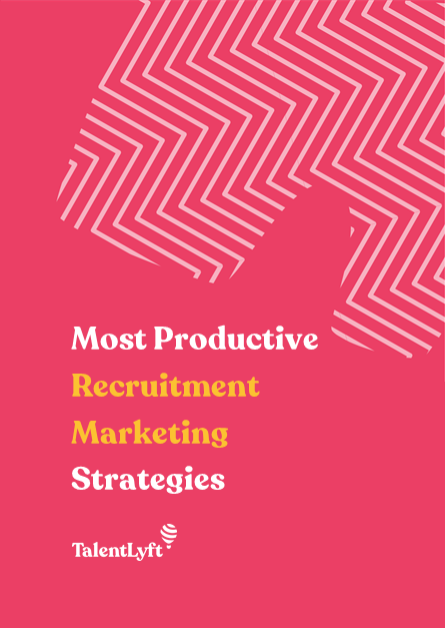Employer Branding Terms Every HR Professional Should Know
In today’s world of war for talented employees, being a desirable company to work for is what every employer wants. Getting there is what’s not so easy. We do, however, know what can take you there. The answer is Employer Branding! Since this term is still not very clear and well defined, we decided to put together a list of employer branding terms that are important for every HR professional to know or at least be familiar with.
![https://adoptoprod.blob.core.windows.net/article/BddTU_JxBUyIAcm5lgNB9g.png?2899]()
HR is one of those industries that use very specific terms and expressions. With the emergence of new best practices, new trends and new technologies in the world of HR, many new terms and definitions have emerged. in order to become a more successful recruiter, it is important for HR professionals to get familiar with those terms and expressions. Some of the new terms in HR include: Employer Branding, Social Recruiting, Candidate Experience, Passive Candidates, Recruiting Metrics and many more.
Check out our Technology Glossary for Recruiters & Human Resource Managers to learn other important new HR terms!
List of most important employer branding terms:
- Employer branding is the process of promoting a company, or an organization, as the employer of choice to the desired target group, one which a company needs and wants to recruit and retain. The process facilitates the company’s ability in attracting, recruiting and retaining ideal employees – referred to as Top Talent in recruitment – and helps secure the achievement of the company’s business plan.
- Employer Brand - if employer branding is the process, the employer brand is the identity of a company as an employer of choice. For effective employer brand promotion, however, the company can only attract current and future employees if it has an identity that is true, credible, relevant, distinctive and aspirational. To achieve this, extensive research needs to be conducted, so as to ensure that the employer’s identity addresses not only Top Talent’s but also Top Management’s demands.
- Candidate Experience is a job seeker’s feelings about an organization’s job application process. Applicant attitudes and behaviors are important for a number of reasons and can impact abandonment rates (the number of people that start but do not finish completing a job application on the company’s applicant tracking system) and employer branding attitudes (an organization’s reputation as an employer).
- Employee Value Proposition (EVP) is the balance of the rewards and benefits that are received by employees in return for their performance at the workplace. Organizations generally develop an EVP to provide a consistent platform for employer brand communication and experience management. Minchington (2005) defines an Employee Value Proposition (EVP) as a set of associations and offerings provided by an organization in return for the skills, capabilities and experiences an employee brings to the organization. The EVP is an employee-centered approach that is aligned to existing, integrated workforce planning strategies because it has been informed by existing employees and the external target audience. An EVP must be unique, relevant and compelling if it is to act as a key driver of talent attraction, engagement and retention.
- Company’s culture — the glue that binds the organization - includes its values, vision, mission statement, working language, systems, beliefs, and habits. The pattern of collective behaviors and assumptions that are taught to new hires as a way of perceiving, thinking, and feeling about the company is also part of the culture. Company culture affects the way that people and groups interact with one another, with clients, and with Stakeholders.
- Internal employer branding - spreads the calm and positive vibes through the entire organization. The employees feel proud of the employer, and they are not worried to speak about initiatives with friends and former colleagues.
- Employer brand management - coordinating all of the parts that make up a positive brand experience. That’s communication, but it’s also those elements of people management, where you’re designing processes and you’re designing experiences that are going to reinforce that brand.
- Employee engagement is the effort to influence employees as they deliver more than expected. The employer needs the creative mind of employees. Employees can fulfill their task, but the organization needs more. The innovative organization utilizes the small extras delivered by employees. It can provoke employees to bring ideas, and it has the ability to collect them. It has the ability to choose proposals for the improvement.
- Employer Reputation is a critical component of employability. The majority of university graduates searching for employment are considered on the basis of their industry experience, skills and the educational institution where they studied.
- Employee satisfaction is a measurement of employees’ “happiness” with their current job and the work they are doing. Many individuals confuse employee satisfaction and employee engagement as one in the same. While the two are related measures, there is a key distinction between each term. Employee satisfaction measures how or happy and content an employee is with his or her job.
Struggling to attract relevant candidates?
Build your own Branded Career Site in TalentLyft and enhance your employer branding! Let all your candidates know about the amazing culture at your company.
Book a quick call to learn more 















